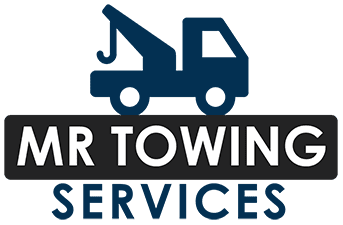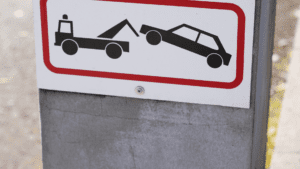If you’ve ever had your car impounded, you know how stressful and confusing it can be. Car impounds can occur for various reasons, including parking violations, unpaid tickets, or involvement in illegal activities.
That’s why it’s crucial to understand what to do if your car is impounded. This guide walks you through the necessary steps, from discovering your impounded vehicle to retrieving it safely. Let’s dive in and explore the world of car impoundments together.
Car Impound: A Comprehensive Guide to Recovering Your Vehicle
Understanding Car Impounding
Definition and Reasons for Car Impounding
Car impounding refers to the legal process of confiscating and storing a vehicle due to violations or legal requirements. Several violations can lead to car impound. While specific regulations may vary depending on the jurisdiction, here are some common violations that can result in car impoundment:
1. Parking Violations:
- Parking in a tow-away zone
- Blocking fire hydrants or emergency exits
- Parking in a handicapped or disabled parking space without proper authorization
- Parking in front of a driveway or on private property without permission
2. Unpaid Tickets:
- Accumulating unpaid parking tickets
- Ignoring or failing to pay traffic citations or fines
- Outstanding toll violations or unpaid tolls
3. Suspended or Revoked License:
- Driving while your license is canceled or suspended
- Driving a car without a legal license or the necessary papers
4. DUI or DWI:
- Driving while you are under the influence of drugs or alcohol
- Driving while intoxicated or impaired
5. Reckless Driving:
- Excessive speeding or racing
- Engaging in street racing or dangerous maneuvers
- Reckless endangerment of others on the road
6. Vehicle-related Violations:
- Operating a vehicle without valid registration or insurance
- Driving a stolen vehicle
- Using a vehicle while committing a crime or illegal activities
7. Public Safety Concerns:
- Being involved in hit-and-run accidents
- Fleeing from law enforcement officers
- Engaging in street racing or other activities endangering public safety
It’s important to note that the specific violations that can lead to car impoundment may vary depending on local laws and regulations. It’s always advisable to familiarize yourself with the particular rules in your jurisdiction to avoid any potential impoundment situations.
Legal Regulations and Impoundment Process
Understanding the legal regulations surrounding car impoundments is essential for a seamless process. When a vehicle is impounded, authorities typically tow it to a designated impound lot, where it is safely stored. The car remains there until specific requirements, such as payment of fines or resolution of violations, are met to facilitate its release. Knowledge of these regulations helps ensure compliance and a smoother experience when dealing with car impoundments.
Discovering Your Car Has Been Impounded
Recognizing the Signs of Impoundment
When you approach the location where you last parked your car and discover it is missing, it might indicate that your vehicle has been impounded. Look for no-parking signs and tow-away zones, or contact local law enforcement to confirm whether your car has been impounded. Additionally, you can search online or use smartphone apps to find the nearest impound lots.
Gathering Essential Information
If your vehicle has been impounded, gathering the necessary information is crucial. This includes noting down the impound lot’s location and contact information. Additionally, document any personal belongings left in the vehicle to ensure they are returned to you when you retrieve your car.
Immediate Actions to Take
Remain Calm and Stay Informed
Discovering that your car has been impounded can be overwhelming, but remaining calm and collected is essential. Gather all the information available about the impoundment, including its reason. Contact the impound lot or local authorities to gather further details and clarify any doubts or concerns you may have.
Determine the Reason for Impounding
Understanding the reason behind your car’s impoundment will help you determine the necessary steps for its release. Suppose the impoundment is a result of unpaid tickets or violations. In that case, you must address those issues before proceeding with the release process.
Retrieving Your Impounded Car
Necessary Documentation and Identification
To retrieve your impounded vehicle, you must gather specific documentation, including your driver’s license, vehicle registration, and proof of ownership. Make sure to have these documents readily available to expedite the release process.
Paying Impound Fees and Penalties
Impoundment comes with various fees, such as towing, storage, and administrative charges. You must pay these fees and any outstanding penalties when retrieving your car. It’s advisable to inquire about the accepted payment methods and if there’s any room for negotiation or reduction of costs.
Dealing with Potential Challenges
Resolving Outstanding Issues or Violations
If the impoundment results from outstanding issues or violations, addressing them is crucial. Pay any fines or penalties, rectify the violations, or resolve any legal matters related to the impoundment. Doing so can prevent future impoundments and ensure a smoother driving experience.
Seeking Legal Assistance if Needed
In complex situations or when your rights are violated during the impoundment process. Consult with a lawyer or legal professional specializing in vehicle impoundments to understand your rights, explore potential legal remedies, and protect your interests.
Takeaway
Car impoundments can be a challenging experience, but with the proper knowledge and actions, you can navigate the process successfully. Remember to remain calm, gather essential information, and take steps to retrieve your impounded car.
By understanding the regulations, addressing outstanding issues, and seeking legal assistance if needed, you can minimize the impact of car impoundments and prevent them from recurring. Use this comprehensive guide as a valuable resource to ensure a smooth recovery of your impounded vehicle.
The cheapest towing company near me, vehicle impound, accident removal, and flatbed towing, are all services that can help you retrieve your impounded car. Consider these options as you work through the steps outlined in this guide.
Choose MR Towing for Your Car Impound Recovery
For prompt and reliable towing services, contact MR Towing Services at 214-238-5134. Whether you need assistance with car impound recovery, accident removal, or flatbed towing, our team is here to help. Trust our experienced professionals to provide efficient and affordable solutions for all your towing needs. Call us now and experience the quality service you deserve.

